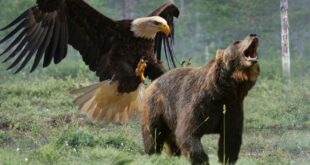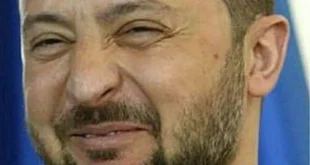Alexander Dugin
Open Revolt
March 25, 2014

There are Ukrainians and Western Ukrainians. These are two different social, national, ethnic, and cultural groups. Ukrainians are a West Russian ethnos which recognizes its historic unity with Eastern Slavs and Velikorossy (a historic term meaning “Great Russes,” often translated as “Great Russians”) as the core of the Eastern Slavs and the creators of an autonomous and powerful Eastern Slavic Orthodox State. Thus, Ukrainians are not simply “our people,” they are a part of us and, ultimately, they are we ourselves. They are not different, they are the same.
Western Ukrainians are a sub-ethnos, which historically separated itself from the Western Russian population, formed in Volhynia and Galicia, having experienced significant Polonization and the influence of Catholicism (in the form of the Uniate—Eastern Catholic—Church). Western Ukrainians consider themselves an autonomous group, opposing themselves to other Eastern Slavs (first and foremost, these are Velikorossy, “moskali” (a derogatory term that means “Russians”)), Orthodox peoples, but also Poles and Austrians. Therefore, they have never had (and will never have) statehood, since it is impossible to build a State on the basis of hatred toward all surrounding peoples.
Modern-day Ukraine houses people with a Ukrainian identity and a Western Ukrainian identity. Making peace between them was the goal of the Ukrainian state that existed between 1991 and 2014. Ukraine’s political elite failed to do so. The Western Ukrainian minority insisted that the entire modern-day Ukraine must possess a single—Western—identity, thereby opposing the rest of the Ukrainians. Thus, it was they who ultimately destroyed contemporary Ukraine. Thanks to them, that Ukraine is already dead. And the more they scream that it has not died, the faster and more irreversibly it continues to die.
Ahead of us is the final schism of the Ukrainian space into two halves: the Western part headed by Kiev (Pravoberezhie, the Right River Bank) and the South-East, which is dominated by the Ukrainian (Orthodox East Slavic) identity. Crimea has been reunited with Russia, so what is left is the appearance of a new essentially Ukrainian (but not Western Ukrainian) State—Novorossiya (literally, “New Russia”). It will both be independent and friendly toward Russia.
This State may, indeed, form, but this is not a guarantee. It is over this area that the real struggle begins.
What is left for Western Ukrainians is the construction of their Galician-Volhynian State, “Westernia,” on the Right River Bank. Most likely, this project is doomed to failure. The reasons are as follows:
First of all, Western Ukrainians will never abandon their claims to control South-Eastern Ukraine (Novorossiya). Therefore, this is where the conflict lines will be drawn.
Second, the Western Ukrainian identity is strictly anti-Polish, whereas Poland considers its former possessions in the Volhynia region to be historically justified, nor have the Poles forgotten about the ethnic cleansing of their ancestors by the so-called Ukrainian Insurgent Army.
Third, “Westernia” is exclusively oriented toward the U.S., not continental Europe, which will create tensions with the European Union.
Fourth, Galician ultra-nationalism will become obvious to the West sooner or later, and it is doubtful that anyone would want to deal with this kind of a regime on serious terms.
And, finally, this kind of ultra-nationalism will create tensions with Rusyns in the South-West (Carpathian Rus), Hungarians, and other ethnic minorities.
Therefore, the Right River Bank State will collapse, proving one truth: that which was never part of history cannot last for long.
It is obvious that there will be no dialogue between Russia and Western Ukrainians. Each time they crawl out, they will strictly and deservingly get “kicked in the teeth.” In contrast, history and fate themselves dictate not only a dialogue but brotherly unity between Ukrainians and Russians. And here we face a very important moment: Russia must act not as an enemy, but as a friend and patron of the Ukrainian identity. The Ukrainian ethnos, language, culture are all part of our spiritual and historic wealth. If Western Ukrainians, with their current negative identity, only deserve a “kick in the jaw” from us, then Ukrainians are worthy of love, friendship, and the most gentle and attentive kind of a relationship. We must not insist on the Russification of Ukrainians, but instead act as the guarantors of safekeeping and developing their culture, language, and identity.
 Daily Stormer The Most Censored Publication in History
Daily Stormer The Most Censored Publication in History


